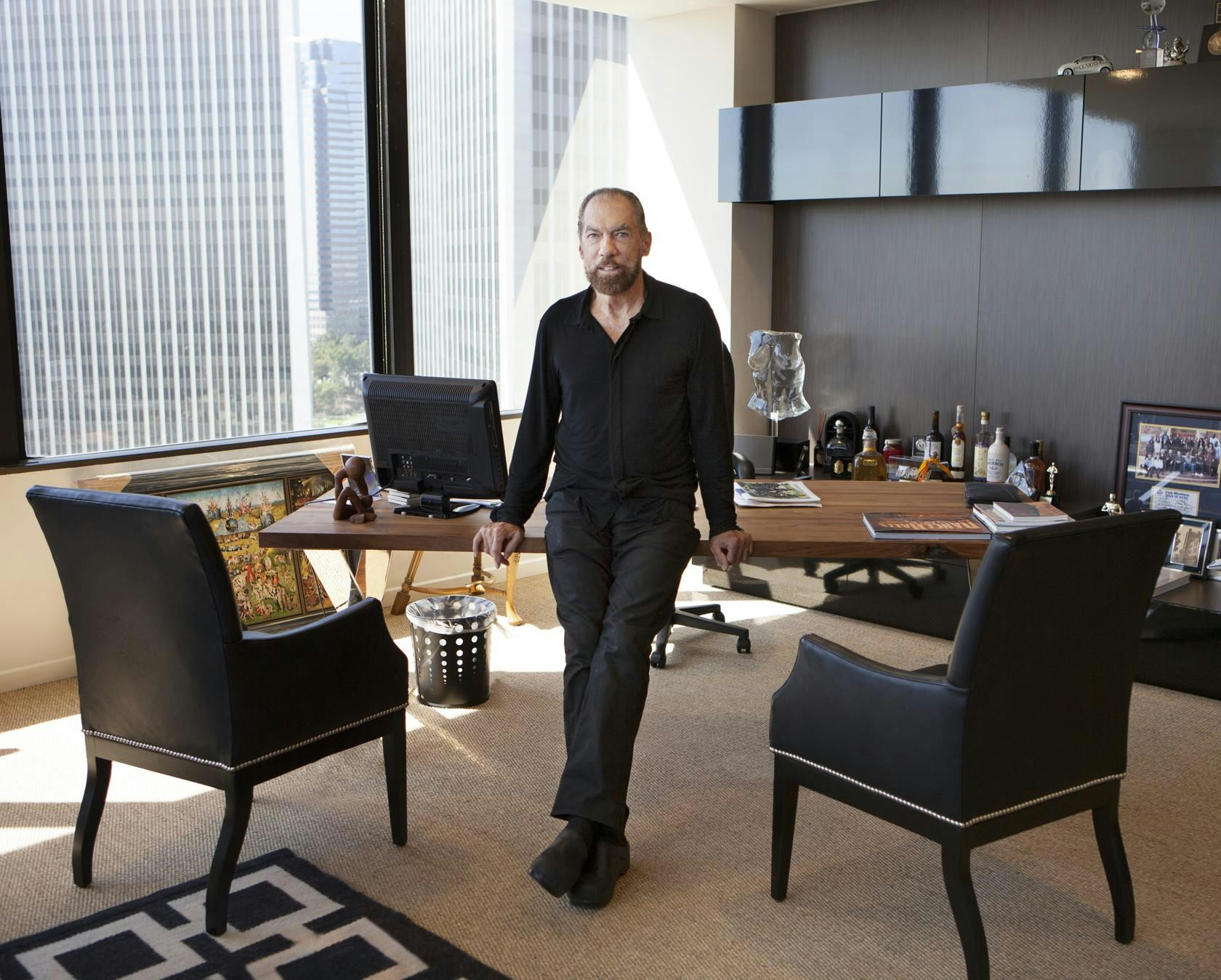You may have not heard of John Paul DeJoria, but you’ve definitely heard of the companies he started: Patron, probably the most famous tequila company in America, and John Paul Mitchell Systems, the hair care company.
Unlike so many stories of “self-made” entrepreneurs that end up actually being about those who were privileged with wealth early on, DeJoria’s story is truly one of a self-made man who went from homelessness to billionaire.
Here is his story. And the lessons that come with it.
A rough start
DeJoria didn’t have it easy growing up. Raised in poverty by a single mother, he and his brother often had to help support the family themselves. At the age of nine, he and his brother would sell Christmas cards and newspapers in order to help support the family.
He eventually ended up in foster care when she could no longer support him and his brother, which led to his joining a gang and homeless while living out of his car.
A strong spirit
Amazingly, this didn’t hurt his determination or his spirit. From his perspective, “The only way I could go was up.”
So, even homeless, DeJoria found a way to work: he was a janitor, a delivery boy, a gas station attendant, and much more until he finally joined the Navy. After that, he hoped to go to college, but simply couldn’t afford it. So he sold encyclopedias door to door for five years.
He credits this experience with helping him learn some of his most valuable lessons in business: “You’ve got to be prepared in life for a lot of rejections,” he has said.
DeJoria had the experience of literally having doors slammed in his face, which taught him that in order to succeed, “You must be just as enthusiastic on door 51 as you were on door 50, even if all 50 of those doors are closed in your face.”
Not stopping
This lesson can be seen in his career trajectory, even as he started to find a foothold in business success. He learned about hair care products from working in Redken Laboratories in 1971, but he ended up getting fired in 1975 due to disagreement over business strategies.
DeJoria then joined another hair care company, and despite rising sales and his success as a team member, he was again. His next job was in the Institute of Trichology, and he was again laid off.
“Failure” after “failure” and yet he kept going. The reason he was able to go on, in addition to his ability to deal with rejection was another lesson he learned: “When you’re down, most people think about the past and what got them there. That’s not going to get you anywhere. Think about what your next step is. Don’t dwell in the past—go forward.”
The climb
Finally, DeJoria decided to use his experience to start his own company, with his hairdresser friend Paul Mitchell and founded Paul Mitchell Systems by taking a loan of $700, some of which he borrowed from his mother. And again, in taking this risk, he ended up living in his car.
The first product they developed was one that at the time was unheard of: single-application shampoo and a leave-in conditioner. Although they struggled for the first two years, in the third year they made a revenue of $1 million. After that, the rocket ship took off, and by 2011, his company was making $900 million annually.
After the death of Paul Mitchell, he started Patrón Spirits Company, with his friend Martin Cowley and became a founding partner of the House of Blues.
Today, he is worth $3.2 billion.
Some tips from the rags to riches billionaire
In addition to the tips we already heard (Don’t let rejection get you down and don’t dwell on the past), DeJoria has a few other tips he has shared:
1. “Whatever service you provide or whatever product you want to sell, you must make sure it's of the finest quality, because you don't want to be in the order business. You want to be in the reorder business.”
2. “There is no right economy to start a business. It's anytime. John Paul Mitchell Systems started in the worst economy since the great Depression. It was a struggle, but we believed what we had was the very best.”
3. “Successful people do the things that unsuccessful people don't want to do. By working a little bit later, and working a little more on the weekends and at night.”
4. Avoid people who don't make you happy. Leave no room for negative people or negative influence in your life. That's true for personal life, and also for business.
If you start a business and have negative people around you, they are going to tell you what you cannot do, and what you did wrong. You don't need that when you start a business. Stay around people who are a positive influence and have good energy.”
And finally, and most importantly:
“Success unshared is failure. To make a long story short, that's how I look at it. We do very well, so if we've been blessed, then I think it's everyone's obligation to pass some of it on. Once you have enough food for you and your family and your grandchildren, and a little BBQ for your great grandchildren left over, then let's give some other people a helping hand.”
Giving back
DeJoria is now one of America’s biggest philanthropists. He funds organizations like Chrysalis, a nonprofit group that helps homeless and low-income individuals get back on their feet and find the path to self-sufficiency and Grow Appalachia, a nonprofit initiative that provides the skills and resources needed to Appalachian families for them to grow sustainable, nutritious food.

